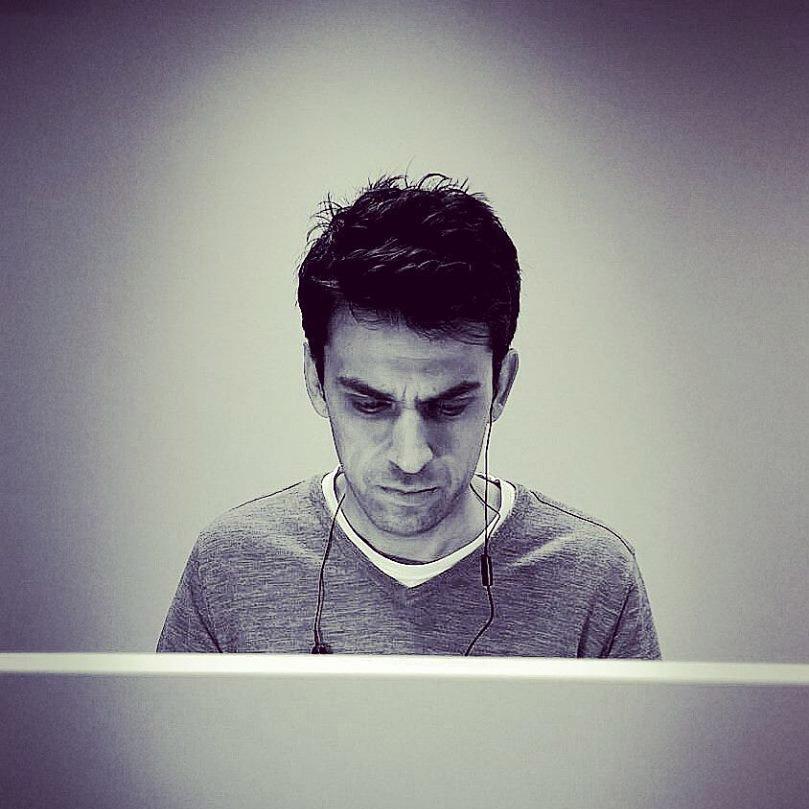From engineer to founder: top mistakes you’re bound to make
Going from engineer to founder of a startup or new business is a challenging task. One thing is certain, you will make mistakes. That, like it or not, is part and parcel of the process.

But there’s no need to despair. After all, the path to success is paved with mistakes, or ‘failing fast’, as it’s often known in the startup world.
Let’s face it, no one is perfect, even if they think that they are. But, especially if you’re a technical founder – or an engineer in other words – you’ll soon become aware that there’s a myriad of things to take into account when you are creating a business of any sort, particularly on the commercial side.
So, how do you handle potential pitfalls, especially ones that you may not even be aware of – yet. We recently covered a similar issue in our piece of startup distractions. Now, this time, let’s have a look at a list of what we feel are the most common mistakes that crop up in any transition from engineer to founder.
The top 5 mistakes you’ll make when going from engineer to founder
As a general rule, expertise in creating or developing a product is one thing; while, starting and managing a startup or other business, is another entirely. This is even more significant for startups in a technology field.
Yes, for your product you need the engineering and technical expertise of someone who can build it. This is true whether we’re talking about an app, SaaS (software as a service) product, or hardware. Product development efficiency is key.
However, it’s on the business side of things where a technical, or engineer founder, can be found wanting. That’s why a lot of successful startups balance this dynamic by having both an engineer and non-technical co-founder partnership. When this is not possible, it’s simply a key goal for the engineer founder to work on their self-awareness regarding the “bigger picture” commercial side.
Without further ado, here are the main big examples of mistakes that engineer to founder types make; and how to proactively handle them before they happen.
Fatal attraction
No, this has nothing to do with the classic 80s film starring Michael Douglas and Glenn Close (phew). But it’s true that inventors can become overly obsessed with their product, hence the term fatal attraction. While this is also true of non-engineer founders, the case of obsession can become more extreme among engineers. Let’s face it, if you’re an engineer founder you spend most of your time focusing solely on a product.
So it’s easy to see why you may fall in love with it. It is your baby after all. But, if this kind of obsession goes unchecked, an engineer founder may often think their product is the best; just because it’s their product, or is based on whatever the coolest technology is for example. Such beliefs carry a huge risk. Which is? That simply, it can feed the ego and make it all a matter of pride.
This can even lead it to become an ‘absolute truth’ in the mind of the engineer or technical founder. Here the leap from engineer to founder is about having a growth mindset, and coming down off that pedestal; no matter how good a developer or engineer you may be, or think you may be. You can easily avoid this one; as long as you have humility and take the time to step back and see the bigger picture.
We’ll just built it and they will come
Build it & they will come. This one is also a classic mistake. Many engineers who become founders have often worked at a successful company; one which already has thousands of users for the product they were working on. Naturally then, it’s understandable to think that “Hey, I can do this by myself and people will come and use it – or buy it!” The thing is, you will be extremely lucky to work at a startup that already has pre-existing audiences. And this means that you have to attract and build the audience. And that is no mean feat. What can happen is that as an engineer founder, you spend far too much time building and creating the product; that’s, versus talking to users, looking for early adopters, and conducting interviews.
These are such important aspects in the early stages of any startup. Making the journey from engineer to founder then, is all about trying to reduce or remove the risk concerning the market need for your product. You want to be sure the need, want or desire is there. Otherwise you risk investing a superhuman amount of effort (talent, money, heart and soul actually) into your product before you are truly confident that it’s something people will want. That’s why at Starttech, the watchwords are business model over product. Every time.
Lack of commercial nouse
Let’s face it, most engineers would freely admit that they don’t know how to sell. And that’s okay. The point is to recognise this and get the support you need. Whether that help comes in the form of a co-founder, a business development manager, or from a mentor outside the company, it’s vital you get this right. First and foremost, it doesn’t matter how good your product specs are; if you are not focused on sales, marketing and business strategy, then you won’t get off the runway. Or worse still, you will crash land shortly after taking off. You need to have the ability to sell within your team, and to understand consumer trends and behaviors.
Here is where the IQ can often take a backseat and the EQ comes to the fore. Like it or not, even in a data driven world, sales and business development require a combination of emotional intelligence; and solid go-to-market strategy skills. You have to be able to get inside the minds of customers and understand – and stay in touch with – market dynamics; which, of course, can change rapidly.
I’ve closed tens of millions in revenue in my career; and my success is due to an ability to communicate how products help solve a customer problem. I’ve learned how to tell a story that resonates with customers on an emotional level; not just stating specifications and features.
Consumers are trying to solve core emotional needs; avoid pain, feel pleasure, look good in front of others, to name a few. Instead of selling your product, focus on understanding your customers and their needs.
Placing too much emphasis on features
As we touched on earlier, over-valuing product specifications and features over things like sales, marketing and business strategy can cost you dearly on your journey from engineer to founder. Technical founders can be accused — or responsible — of holding up a release of a product to market because they feel it’s ‘not ready’. But, more often than not, having feature X,Y and Z ready is irrelevant if you have a functional product to start testing the water with.
And this is the most important part. Because then, you will collect feedback; and see whether in fact features X, Y and Z are even needed at all. Bottom line, don’t worry too much about scalability and/or troubleshooting and meticulously fixing all the bugs; as long as they are not ‘showstoppers’ of course.
The thing is, it’s highly unlikely that you will fail because your product can’t handle scaling up; or having too many rough edges. Also, don’t waste too much time cleaning up technical debt. After all, part of the build-measure-learn process means that your product is likely to change so much in the early stages it’s not worth being too invested in long term maintainability at that stage.
Writing your product off too early
Finally, just because people aren’t queuing up to use or buy your product on day one doesn’t mean it’s not valuable. It could just mean you’ve underinvested in sales & go-to-market strategy and activity; which is often the most difficult part for technical founders in the early days. Here, perseverance is the key and making sure you are taking on board any customer feedback that you get to grow; or even pivot your product proposition. And don’t underestimate the power of marketing. There are a plethora of low-budget ways to get your startup’s marketing machine going. So, make it a habit of reading up on those; or making sure you have someone who already has a solid grasp and can apply them to your business.
The journey from engineer to founder starts here
Let’s make one thing clear to recap. This post is not intended to put down engineers or technical founders. They are usually the brains behind every awesome product. But still, balance is key. The old yin and yang concept at work.
At the end of the day, the main aspect of your journey from engineer to founder is reducing the risks of failure. And trying to avoid some “common” mistakes, that are sometimes awkwardly not that common, plays a big role in facilitating this.
As a rockstar engineer, you can’t be expected to be a savvy entrepreneur and street-wise, commercially-minded whizz. The two rarely go together. That’s why you need help from the other main stakeholders around you.
And if you succeed in the above, then you won’t even call mistakes by their name. To paraphrase what the famous TV artist Bob Ross used to say, “mistakes are just happy accidents”.
Want to read more about tuning your startup’s marketing machine? Have a look at this post focused on marketing for startups.
